News / 2020 Draft Regulations Approved by the Cannabis Control Commission
For Immediate Release
July 20, 2020
Contact
Cedric Sinclair
Director of Communications
857-268-6454
Maryalice Curley
Press Secretary
857-292-4891
Press@CCCMass.Com
2020 Draft Regulations Approved by the Cannabis Control Commission
WORCESTER, MA—The Cannabis Control Commission (Commission) convened Monday, July 20 to approve draft changes to Massachusetts’ adult and medical use of marijuana regulations. The changes they discussed will soon be filed with the Secretary of State’s Office and become subject to a public review and comment period this summer before they are brought back before Commissioners again for final approval and promulgation.
Along with public policy discussions that Commissioners completed on June 19, the draft modifications for the public’s consideration include updates to the agency’s Leadership Award Ratings and Responsible Vendor Training Program, clarification of ownership and control definitions for Economic Empowerment Applicants, Social Equity Program (SEP) Participants, and Persons or Entities with Direct Control.
The 2020 regulatory review process incorporated the work of Commissioner-run drafting groups and feedback from cross-departmental subject matter experts. Many of the draft changes approved Monday contemplated public comments the agency has received during previous regulatory review periods and ongoing issues of concern raised by Commissioners, staff, industry stakeholders, patients, consumers, and public health and safety experts.
The draft changes also redistribute redundant regulations that previously existed for Colocated Marijuana Operators (CMOs), which are defined as businesses licensed to operate as both Medical Marijuana Treatment Centers (MTCs) and Marijuana Establishments (MEs). This restructuring effectively eliminates the CMO regulations, 935 CMR 502.000 and responds to the Commission’s ability to bring parity to the medical use and adult use of marijuana programs under 935 CMR 501.000 and 935 CMR 500.000.
Across both programs, under the draft regulations, licensees would be required to:
- incorporate OSHA standards into their workplace safety programs;
- add policies and procedures to product manufacturing or cultivation operations to ensure compliance with the Massachusetts Fire Code;
- maintain their ability to direct transfer wholesale product between ME and MTCs without going through a CMO; and
- record in Metrc potency levels derived from the Cannabinoid Profile contained within marijuana or marijuana products, including the amount of THC and other Cannabinoids, when completing retail or patient sales.
MEs and MTCs also would be allowed to utilize brand name sponsorship at certain events, but not advertise to underage participants or entrants, and target advertising through mechanisms such as geofencing, provided they retain documentation of audience composition data related to these marketing activities.
Additional proposed changes under the adult use program include, but are not limited to:
- Clarification of training requirements for the Responsible Vendor Training (RVT) Program, including eight annual hours required training for ME Agents, four of which must be RVT Program courses, and criteria for teaching on-line, non-real-time courses.
- Requiring Certified Economic Empowerment Applicants to report to the Commission all changes of ownership and control and upon renewal and certifying to the Commission that the requisite ownership and control has been maintained by the requisite class of people identified on the EEAs certification.
- Requiring 51% or more equity ownership by SEPs to obtain fee waivers and discounts and allowing fee waivers and discounts to apply to microbusinesses and Office of Supplier Diversity-certified minority-owned, veteran-owned, and women-owned businesses, who are also deemed to be small businesses by the Commission, to access the same fee waivers and discounts.
- Updating the definition of Persons or Entities with Direct Control by encompassing the equivalent of a Director in a business entity such as a Limited Liability Company, which has Managers in lieu of a Board of Directors, and setting a specific dollar amount with respect to what the Commission considers “significant contracts.”
- Allowing Craft Marijuana Cooperative farmers to participate in the industry without being actively involved as cultivators on the license, but instead solely as landlords.
- Requiring that Cultivators, Product Manufacturers, and Retailers develop policies and procedures for providing or receiving vendor samples between licensees, and tracking, recording, and documenting the product’s movement through the supply chain.
Additional proposed changes under the medical use program include, but are not limited to:
- Enhanced patient registration and recertification processes and procedures, such as:
- Broadening the types of physicians who can serve as the second physician making the recommendation for pediatric patients, as a response to pediatricians who are overloaded and parents of severely ill children who have difficulty finding a physician;
- Requiring Certifying Health Care Providers (Providers) to have a plan to provide discounts to low-income patients, similar to the MTCs’ requirement, and allowing them to apply for an exemption;
- Allowing patients with certain hardships (receiving SSDI/SSI, or with terminal illness/permanent disability) to renew every two years instead of one year, in line with many other states;
- Permitting patients to cultivate up to 12 flowering plants without hardship cultivation, and if more are needed, requiring hardship cultivation, pending review of conflicts in relevant laws.
- Streamlining the process to receive a Temporary Registration Card along with other minor changes based on patient feedback; and
- Allowing certain out-of-state patients, often coming to Massachusetts for its top-tier hospitals, to be certified and registered as a patient in Massachusetts.
- Expanded Personal Caregiver service and safeguards:
- Allowing Caregivers to serve as a caregiver for up to ten patients and requiring them to document costs for which they are reimbursed so it is available for Commission inspection upon request.
- Prohibiting Caregivers from receiving kickbacks from MTCs in exchange for patients obtaining medical marijuana from that MTC.
Public hearings on the draft regulations will be held on August 3 and the final vote is anticipated for September 24. For additional context regarding the draft regulatory changes, video of Commissioners’ July 20 meeting will be available on the Commission’s Facebook and YouTube pages. Public meeting materials are also available at MassCannabisControl.Com/Documents.
For more information, visit MassCannabisControl.Com, contact the Commission by phone (774-415-0200) or email (Commission@CCCMass.Com), or follow the agency on Facebook and Twitter.
###
Get Notified
Subscribe for updates from the Cannabis Control Commission.

